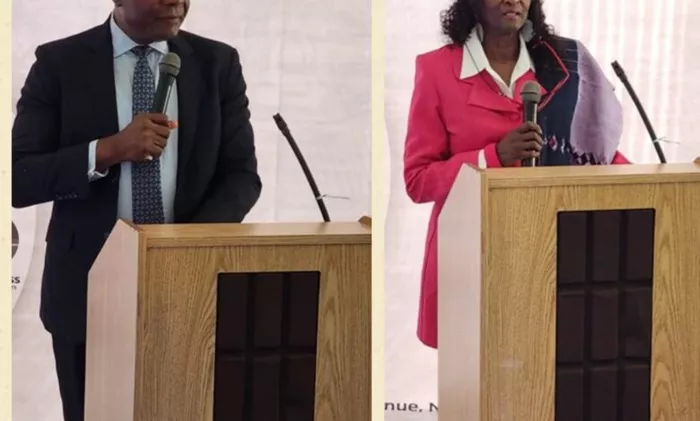New York, September 19, 2024 — At a high-level roundtable during the 79th United Nations General Assembly, Nigeria’s Chargé d’Affaires Ad Interim to the UN, Syndoph Endoni, discussed the difficulties Nigerians face when applying for U.S. visas. The event, which focused on sustainable investments and was organized by various international organizations, highlighted the strict conditions imposed by the U.S. on Nigerian visa applicants.
Endoni acknowledged the recent increase in the validity of U.S. tourist visas for Nigerians from two to five years. However, he called for further improvements, especially in reducing the long wait times for visa interviews, which can extend up to three years.
“We appreciate the extension of the visa validity, but we urge further efforts to shorten the interview waiting periods,” Endoni said. “Currently, applicants are facing wait times of up to three years, which is discouraging. We are open to reciprocal measures to ease travel restrictions and improve our bilateral relations.”
Endoni emphasized the need for both countries to make efforts to alleviate these travel restrictions. He expressed hope that U.S. officials would consider easing the stringent conditions imposed on Nigerian applicants.
In response, former U.S. Ambassador to Nigeria, Robin Renee Sanders, noted that visa processing delays are a global issue and not unique to Nigeria. “Visa wait times are a significant problem worldwide due to capacity constraints,” Sanders explained. “Nigeria is not alone in facing these delays. The same issues apply when trying to obtain a Nigerian visa, and it’s a global challenge rather than an intentional obstacle.”
The U.S. Embassy in Nigeria recently announced a transition to a new visa service provider. This move aims to address backlog issues and improve service efficiency for visa applicants.
During the UNGA side event, Kunle Yusuff, Executive Vice Chairman/CEO of Merited Negotiating Consulting and Director General of CSCHEI, highlighted Nigeria’s importance as an investment destination. Yusuff emphasized Nigeria’s role as Africa’s most populous country and its largest market, presenting it as a prime location for development interventions that could impact the global black population significantly.
“Nigeria’s economic liberalization has made it a key hub for both domestic and international investors, particularly in West and Central Africa,” Yusuff said. “Global partnerships based on familiarity, likability, and trust are crucial for sustainable investments and accessing grants for national development.”
He added, “We are here today to build trust and create a platform for sustainable investment and support for Nigeria’s growth. Our strong global partnerships will drive development and enhance opportunities for all involved.”
The roundtable aimed to build trust among global partners, foster sustainable investment opportunities, and support interventions that contribute to Nigeria’s development.


